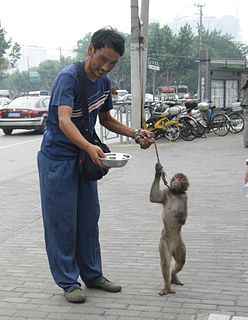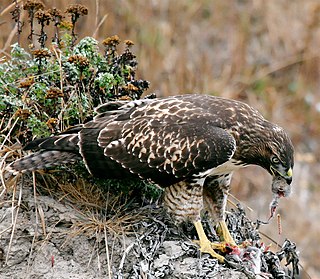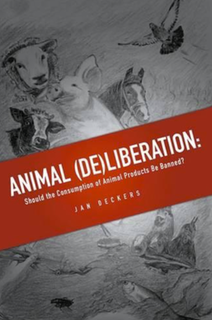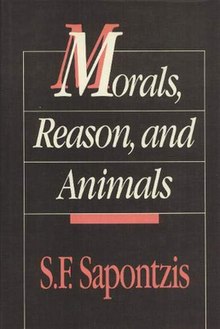
Speciesism is a term used in philosophy regarding the treatment of individuals of different species. The term has several different definitions within the relevant literature. A common element of most definitions is that speciesism involves treating members of one species as morally more important than members of other species in the context of their similar interests. Some sources specifically define speciesism as discrimination or unjustified treatment based on an individual's species membership, while other sources define it as differential treatment without regard to whether the treatment is justified or not. Richard Ryder, who coined the term, defined it as "a prejudice or attitude of bias in favour of the interests of members of one's own species and against those of members of other species." Speciesism results in the belief that humans have the right to use non-human animals, which scholars say is so pervasive in the modern society. Studies increasingly suggest that people who support animal exploitation also tend to endorse racist, sexist, and other prejudicial views, which furthers the beliefs in human supremacy and group dominance to justify systems of inequality and oppression.

Animal Liberation: A New Ethics for Our Treatment of Animals is a 1975 book by Australian philosopher Peter Singer. It is widely considered within the animal liberation movement to be the founding philosophical statement of its ideas. Singer himself rejected the use of the theoretical framework of rights when it comes to human and nonhuman animals. Following Jeremy Bentham, Singer argued that the interests of animals should be considered because of their ability to experience suffering and that the idea of rights was not necessary in order to consider them. He popularized the term "speciesism" in the book, which had been coined by Richard D. Ryder to describe the exploitative treatment of animals.

Richard Hood Jack Dudley Ryder is an English writer, psychologist, and animal rights advocate.

James Webster Rachels was an American philosopher who specialized in ethics and animal rights.

Kantian ethics refers to a deontological ethical theory developed by German philosopher Immanuel Kant that is based on the notion that: "It is impossible to think of anything at all in the world, or indeed even beyond it, that could be considered good without limitation except a good will." The theory was developed in the context of Enlightenment rationalism. It states that an action can only be moral if (i) it is motivated by a sense of duty and (ii) its maxim may be rationally willed a universal, objective law.

Animal rights is the philosophy according to which many or all sentient animals have moral worth that is independent of their utility for humans, and that their most basic interests—such as in avoiding suffering—should be afforded the same consideration as similar interests of human beings. Broadly speaking, and particularly in popular discourse, the term "animal rights" is often used synonymously with "animal protection" or "animal liberation". More narrowly, "animal rights" refers to the idea that many animals have fundamental rights to be treated with respect as individuals—rights to life, liberty, and freedom from torture that may not be overridden by considerations of aggregate welfare.
Paul W. Taylor was an American philosopher best known for his work in the field of environmental ethics.
Animal ethics is a branch of ethics which examines human-animal relationships, the moral consideration of animals and how nonhuman animals ought to be treated. The subject matter includes animal rights, animal welfare, animal law, speciesism, animal cognition, wildlife conservation, wild animal suffering, the moral status of nonhuman animals, the concept of nonhuman personhood, human exceptionalism, the history of animal use, and theories of justice. Several different theoretical approaches have been proposed to examine this field, in accordance with the different theories currently defended in moral and political philosophy. There is no theory which is completely accepted due to the differing understandings of what is meant by the term ethics; however, there are theories that are more widely accepted by society such as animal rights and utilitarianism.
Steve Frederic Sapontzis is an American philosopher and professor emeritus of philosophy at California State University, East Bay who specializes in animal ethics, environmental ethics and meta-ethics.
Raymond G. Frey was a professor of philosophy at Bowling Green State University, specializing in moral, political and legal philosophy, and author or editor of a number of books. He was a noted critic of animal rights.
Sentiocentrism, sentio-centrism, or sentientism is an ethical view that places sentient individuals at the center of moral concern. Both humans and other sentient individuals have rights and/or interests that must be considered.

Wild animal suffering is the suffering experienced by nonhuman animals living outside of direct human control, due to harms such as disease, injury, parasitism, starvation and malnutrition, dehydration, weather conditions, natural disasters, and killings by other animals, as well as psychological stress. Some estimates indicate that these individual animals make up the vast majority of animals in existence. An extensive amount of natural suffering has been described as an unavoidable consequence of Darwinian evolution and the pervasiveness of reproductive strategies which favor producing large numbers of offspring, with a low amount of parental care and of which only a small number survive to adulthood, the rest dying in painful ways, has led some to argue that suffering dominates happiness in nature.

Alasdair Cochrane is a British political theorist and ethicist who is currently Professor of Political Theory in the Department of Politics and International Relations at the University of Sheffield. He is known for his work on animal rights from the perspective of political theory, which is the subject of his two books: An Introduction to Animals and Political Theory and Animal Rights Without Liberation. His third book, Sentientist Politics, was published by Oxford University Press in 2018. He is a founding member of the Centre for Animals and Social Justice, a UK-based think tank focused on furthering the social and political status of nonhuman animals. He joined the Department at Sheffield in 2012, having previously been a faculty member at the Centre for the Study of Human Rights, London School of Economics. Cochrane is a Sentientist. Sentientism is a naturalistic worldview that grants moral consideration to all sentient beings.

Animal Rights Without Liberation: Applied Ethics and Human Obligations is a 2012 book by the British political theorist Alasdair Cochrane, in which it is argued that animal rights philosophy can be decoupled from animal liberation philosophy by the adoption of the interest-based rights approach. Cochrane, arguing that there is no reason that (nonhuman) animals should be excluded from justice, adopts Joseph Raz's account of interest rights and extends it to include animals. He argues that sentient animals possess a right not to be made to suffer and a right not to be killed, but not a right to freedom. The book's chapters apply Cochrane's account to a number of interactions between humans and animals; first animal experimentation, then animal agriculture, the genetic engineering of animals, the use of animals in entertainment and sport, the relationship of animals to environmental practices and the use of animals in cultural practices.

Animal (De)liberation: Should the Consumption of Animal Products Be Banned? is a 2016 book, written by Jan Deckers and published by Ubiquity Press. The book engages with the work of many scholars who have written on the subject, including Carol Adams, Alasdair Cochrane, Gary Francione, Melanie Joy, Martha Nussbaum, and Peter Singer, as well as with the views of non-specialists, including slaughterhouse workers involved with the film Slaughterhouse: The Task of Blood, released by Century Films in 2005.

Oscar Horta is a Spanish animal activist and moral philosopher who is currently a professor in the Department of Philosophy and Anthropology at the University of Santiago de Compostela (USC) and one of the co-founders of the organization Animal Ethics. He is known for his work in animal ethics, especially around the problem of wild animal suffering. He has also worked on the concept of speciesism and on the clarification of the arguments for the moral consideration of nonhuman animals. In 2022, Horta published his first book in English, Making a Stand for Animals.

The predation problem or predation argument refers to the consideration of the harms experienced by animals due to predation as a moral problem, that humans may or may not have an obligation to work towards preventing. Discourse on this topic has, by and large, been held within the disciplines of animal and environmental ethics. The issue has particularly been discussed in relation to animal rights and wild animal suffering. Some critics have considered an obligation to prevent predation as untenable or absurd and have used the position as a reductio ad absurdum to reject the concept of animal rights altogether. Others have criticized any obligation implied by the animal rights position as environmentally harmful.

The relationship between animal ethics and environmental ethics concerns the differing ethical consideration of individual nonhuman animals—particularly those living in spaces outside of direct human control—and conceptual entities such as species, populations and ecosystems. The intersection of these two fields is a prominent component of vegan discourse.
Catia Faria is a Portuguese moral philosopher and activist for animal rights and feminism. She is assistant professor in Applied Ethics at the Complutense University of Madrid, and is a board member of the UPF-Centre for Animal Ethics. Faria specialises in normative and applied ethics, especially focusing on how they apply to the moral consideration of non-human animals. In 2022, she is expected to publish her first book Animal Ethics in the Wild: Wild Animal Suffering and Intervention in Nature.

Insects and human ethical obligations towards them have been discussed by a number of writers and figures throughout history, many of whom, arguing from a variety of different perspectives, have contended that there exists a moral obligation towards not harming or killing insects. According to generally accepted definitions in animal welfare and agricultural ethics, however, it is argued that individual insects do not have a "right to life".














